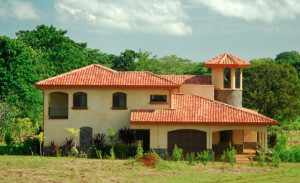
Tenant laws in Costa Rica are pro-tenant in that even if a tenant refuses to pay rent they can continue to live in the property until the landlord exhausts all of his or her legal hurdles to evict them, a process than can take years in the worst case scenario.
But that may soon change with the passage in first debate of a reform to the Landlord-Tenant law that expedites the process of eviction, allowing the Landlord to bring a non-paying tenant to court in as little as two months.
In Costa Rica the Landlord-Tenant Law (Law 7527, called “Ley General de Arrendamientos Urbanos y Suburbanos”) regulates all aspects of the relationship between a property owner and their rental tenant.
The process of evicting a tenant for not paying his rent seems simple enough: the landlord files an action under the Summary Process provided for by the Code of Civil Procedure (Codigo Procesal Civil), the tenant is served and has five days to respond. After the evidential period, the court will issue a final judgement and writ of possession and the police is called in to evict the tenant.
As with all litigation processes in Costa Rica the time frame can vary significantly depending on the court and the location, a process than can take as little as several months to a year or more, depending on the circumstances.
Let’s say that the minimum term of a rental agreement in Costa Rica is three years (this applies to both oral and written agreements). If the tenant wants to terminate the lease before this time expires, he/she must send the landlord a three month prior notice, unless the parties agree otherwise. The parties may agree on a penalty for early termination by the tenant.
If the term of the agreement expires, it is automatically renewed for three years more, unless the landlord gives the tenant a three month period prior notice, stating he/she will not renew the agreement. The landlord may give notice if the landlord or their family need the premises for themselves or intends to undertake major construction work.
For housing, if the rental is in colones (Costa Rica’s currency), there is an automatic yearly increase but cannot be higher than 15% of the fixed rent. In most cases the landlord will increase the rent by 15% without providing an explanation. For the increase to be more than 15%, the country’s inflation must be higher than 15%, and the rent increase must be based on a certification of the inflation issued by the State.
If the rent for housing is agreed in US dollars or other foreign currency, no yearly increase is allowed unless it is called for in the rental agreement and it will not exceed the agreed to amount.
Law 7527 has been effective and enforceable since August 17, 1995. Before then, there was another law that did not fully cover many of the issues that arise in a tenant-landlord relationship. Case law helped to regulate many of the aspects and issues not covered by such legislation. No change is expected in the near future.
Law 7527 does not cover or regulate hotel rooms or bungalows, car parking, or company housing for employees. The Civil Code regulates farms and tourism leases.
Security deposits to cover pending rent payments or any other obligations of the tenant can be freely agreed between the parties with no legal maximum, but in practice, landlords request one month as security deposit. Advance payments of rentals are in contrast limited to just one month’s rent (an exception applies to social housing).
In Costa Rica, the security deposit, typically the amount of the last month’s rent, is not the last month’s rent. The landlord can and will insist on payment for the last month and then uses the security deposit to make repairs to the property after the tenant leaves. In a perfect world, the landlord will refund the deposit after inspecting the property, in full if there are no damages or in part, deducting expenses for the repairs. In the real word, however, the tenant can kiss the security deposit goodbye.
In conclusion, Costa Rica’s tenant law was designed to protect the tenant, which makes it almost impossible for a landlord to evict even the worst tenant. Many lawyers in Costa Rica have made a fortune in tenant evictions or “desalojo” in Spanish.
No comments:
Post a Comment